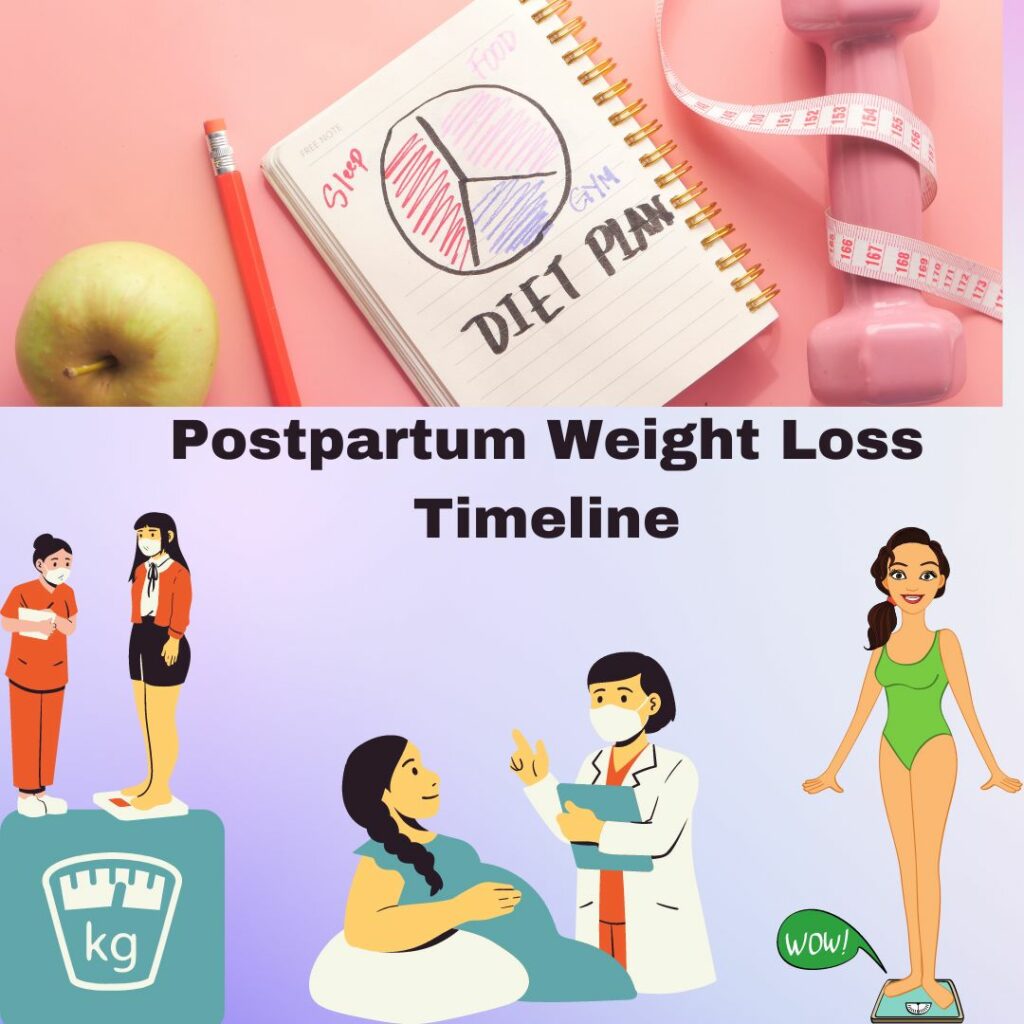You’re eager to feel like yourself again after carrying around an expanding tummy for nine months. Maybe that means trying on your old clothes again. Just how long will it take, what is the postpartum weight loss timeline and what must you do, to get there?
However, the reality is that no one, not even celebrities, rapidly returns to her pre-baby shape.
There are several options available to help you regain your fitness. Nonetheless, remember to take care of yourself; your body has just given birth to another human being. Everything shifted, expanded, and grew to make that possible.
Instead of worrying about “getting your body back” (it never left, after all), you should work on being a healthier, happier, and maybe somewhat different-shaped version of yourself. Here is the procedure for doing so.
How much weight do women typically lose?
Whether they gave birth naturally or had a C-section, most women lose about 13 pounds after giving birth. Most of that comes from your new bundle of joy, which probably weighs between 5.5 and 8.35 pounds.
The placenta and amniotic fluids that surround your baby in the womb are what contribute to the rest of the first weight loss. Some of the weight you lose in the first week after giving birth may be due to the loss of fluids that you have been retaining. You may be experiencing more urination and perspiration for this reason.
A healthy pregnancy weight increase for a woman of average weight is between 25 and 35 pounds, so this decrease is encouraging. Of course, that’s not the whole story. The pregnant fat deposits that your body has are not going somewhere very soon.
Even if you return to your pre-pregnancy weight quickly after giving birth, your body will still likely have a different appearance than you are used to. It takes around six weeks for the uterus to return to its size before pregnancy, but throughout that time your stomach will still seem round and enlarged.
How long does one need to wait for the postpartum weight loss timeline?
Somewhere between six months for a year after giving birth, most women who gained a healthy number of pounds during pregnancy will have lost it.
Of course, that’s only a rough guess, and everyone has their schedule to follow. It may take an additional 10 months to 2 years to get back into pre-pregnancy shape if you acquired more than the optimum amount of weight throughout your pregnancy.
Remember that your body may change even after you achieve your goal weight on the scale. After giving birth, some women may experience changes in their body composition, such as a softer abdomen, broader hips, or smaller breasts (especially if they are breastfed).
That is perfectly OK. This is just mind-blowing. These transitions are the outcome of your body’s remarkable physical achievement in nurturing a human being to full term and bringing her into the world.
Can you lose weight while breastfeeding?
It can. Breastfeeding causes your body to burn 400-500 more calories each day from your food and the fat you gained during pregnancy. Some mothers find that this increase in metabolic rate is sufficient to help them return to their pre-pregnancy weight without making any other changes.
Feeding your baby causes your body to produce hormones that reduce the size of your uterus and your tummy after giving birth.
However, you shouldn’t look to nursing as a certain solution to get your postpartum weight loss timeline as well as your pre-baby physique back. Breastfeeding has been shown to help mothers retain the remaining five to ten pounds of their pre-pregnancy weight by making them hungrier than normal.
This increased hunger is natural since your body needs more calories to support milk production. Not eating when you’re hungry or attempting to restrict your calories too much may also reduce your milk production. When mothers wean themselves off breastfeeding, their appetites typically return to normal, and the extra pounds go off. After you stop nursing, you shouldn’t add further 400-500 calories to your daily diet.
If you find that nursing alone isn’t enough to get you back in the postpartum weight loss timeline, doctors believe that it’s safe to try adjusting your diet and exercise routine to lose up to 1.5 pounds a week. However, avoid crash diets that claim to help you lose weight quickly, as they may reduce your milk supply.
What to eat after having a baby?
You shouldn’t even consider dieting until your kid is at least 6 weeks old, no matter how impatient you are to get back into your pre-pregnancy clothing. Your body needs adequate rest and nutrients to heal from delivery, fend off infection, and feed your baby.
Make sure you’re still getting enough calories once you’ve gotten the okay from your doctor to begin a post-baby diet. If you’re nursing and you don’t get enough calories, your body will stop making as much milk, so you are hungry, and the developing baby will also have to cut back on its food intake.
Furthermore, excessive fat loss (more than 1.5 pounds per week) might cause your body to lose water and lean tissue and can promote the production of toxins that end up in breast milk. Eating too few calories might trick your body into thinking you’re famished, even if you’re not breastfeeding. If you’re already having trouble losing weight, all this uncertainty won’t help.
The first six months after giving birth are the most calorie-intensive in your life, even more so if you are breastfeeding. Since the quantity of calories you need to consume during pregnancy depends on factors such as your body mass index (BMI) and your degree of physical activity, it is best to discuss this with your doctor.
Breastfeeding mothers need an extra 400-500 calories each day to stay the same weight, thus that brings the total daily calorie need for a woman to roughly 2,000.
However, it takes a calorie deficit of 3,500 per week, or 500 fewer calories per day, to lose a pound. This suggests that the average nursing woman would need to return to a daily calorie intake of 2,000 to lose around a pound each week.
It’s not necessary to abandon the excellent eating habits you developed throughout pregnancy to lose weight while nursing. Reduce your intake of empty-calorie snacks in favour of healthy, nutrient-dense options that will keep you full for longer. Maintain a healthy diet by eating modest amounts of foods like:
Foods are high in nutritional value, such as fresh fruits and vegetables for a better postpartum weight loss timeline.
Complete grains – Think oats, whole wheat bread or spaghetti, brown rice or quinoa.
White meat, or lean protein. Foods including fish and shellfish with low mercury levels, chicken, lean cuts of red meat, eggs, tofu, and beans and legumes are recommended.
Dairy products with low-fat content – Try some milk, cheese, cottage cheese, or plain yoghurt.
Healthy fats – Consider edible oils found in foods such as nuts, seeds, avocados, and olives.
How soon after giving birth can you return to exercise?
Getting active might offer you the boost in energy you need to stick with your weight reduction goals. Therefore, it is beneficial to exercise when your body tells you to.
In the case of a healthy, straightforward vaginal birth, you can safely resume mild exercise just a few days after giving birth if you exercised regularly during your pregnancy. Waiting at least six weeks after giving birth is recommended if you had a cesarean section or had problems. However, before beginning, it is recommended that you acquire your doctor’s approval.
Remember that you don’t have to rush into exercising simply because your doctor has given you the green light. In other words, take as much time as you need.
When you do begin working out, try to get in 20 to 30 minutes of activity per day. This can be done in many sessions. Beginning with modest aerobic activity like walking or exercises targeted to improve your weak core muscles and back is a good place to start. Intensity can be increased over time as you see fit, but you should never push yourself to the point of fatigue.
Sustaining your health after giving birth: Tips & Suggestions:
- It’s understandable to look forward to putting on your familiar wardrobe. However, if you shift your attention away from weight reduction and instead concentrate on making healthy decisions, you’ll be able to get in shape more easily and quickly. The following suggestions may assist you in maintaining your progress:
- Working together is essential. Involve your spouse in your efforts to maintain healthy routines, as their support will be invaluable. Get some fresh air instead of sitting in front of the TV after dinner, and resolve to make healthier eating choices as a family. Instead of ordering takeout, you might take turns preparing nutritious meals while the other person monitors the infant.
- Have some nutritious foods on hand. When nursing, you may find that you suddenly feel ravenous. If you keep healthy snacks like fresh fruit, almonds, plain yoghurt, or sliced vegetables with hummus within easy reach, you won’t feel as compelled to devour that half-eaten pint of ice cream hiding in the back of the freezer.
- Discover what you’re passionate about and pursue it. Do you despise spending your time on the treadmill? Please don’t. If you find exercise enjoyable, you’re more likely to keep at it for the long haul.
- Don’t overlook the insignificant. Try to fit in some more physical exercise even if it’s just a little bit each day. Don’t overlook the minor details; they’ll add up in the end. Numerous commonplace actions result in substantial caloric expenditure.
- It’s not necessary to choose between nothing and everything. Everyone, but especially new mothers, deserves a reward every once in a while. Consume nutritious foods at least 80% of the time, but give in to your cravings every once in a while and enjoy a cookie or ice cream cone.
- Don’t lose hope. Keep in mind that fitness is more than just a number on the scale, and concentrate on the progress you’ve already made and the weight you’ve dropped.
- Finally, be as kind and patient with yourself as you would be with a good friend in a similar situation. It’s important to keep in mind that just as it took you nine months to gain the weight, it will likely take you at least as long to lose it.
Don’t lose sight of the fact that you made a wonderful person who loves you unconditionally. Instead of obsessively checking your progress on the scale, focus on the precious baby within your womb. Happy Motherhood!!!

